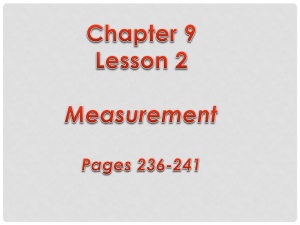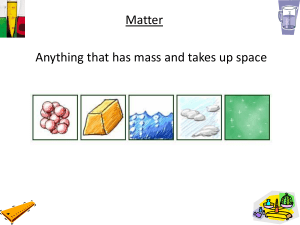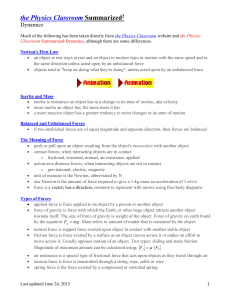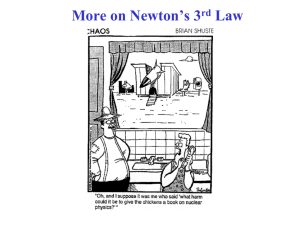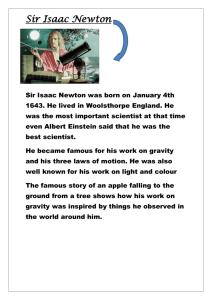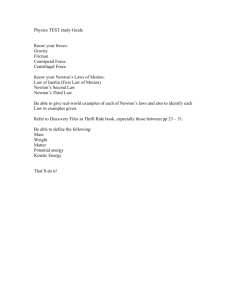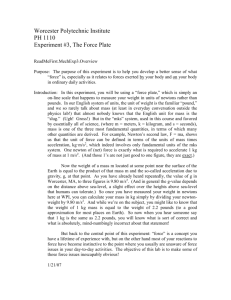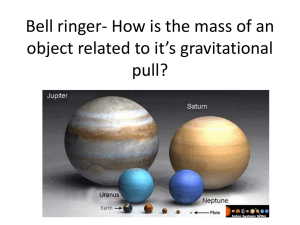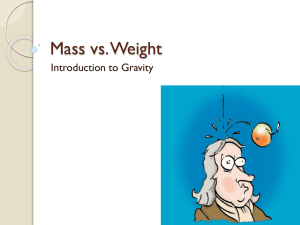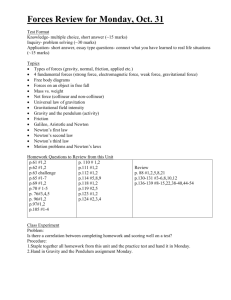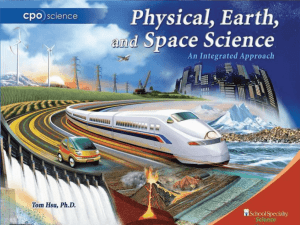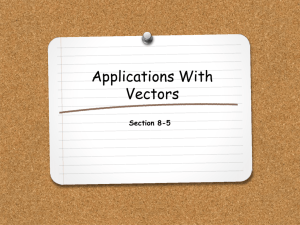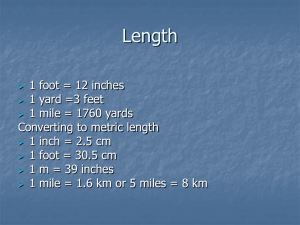Mass and Weight - The Physics Classroom
advertisement
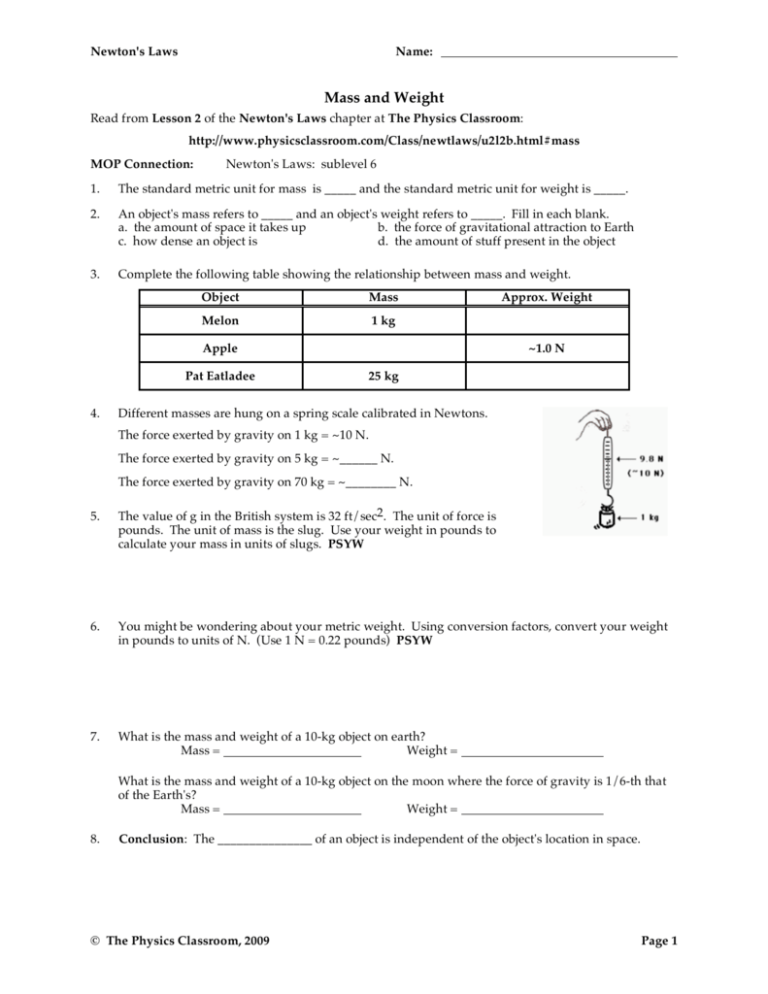
Newton's Laws Name: Mass and Weight Read from Lesson 2 of the Newton's Laws chapter at The Physics Classroom: http://www.physicsclassroom.com/Class/newtlaws/u2l2b.html#mass MOP Connection: Newton's Laws: sublevel 6 1. The standard metric unit for mass is _____ and the standard metric unit for weight is _____. 2. An object's mass refers to _____ and an object's weight refers to _____. Fill in each blank. a. the amount of space it takes up b. the force of gravitational attraction to Earth c. how dense an object is d. the amount of stuff present in the object 3. Complete the following table showing the relationship between mass and weight. Object Mass Melon 1 kg Apple Pat Eatladee 4. Approx. Weight ~1.0 N 25 kg Different masses are hung on a spring scale calibrated in Newtons. The force exerted by gravity on 1 kg = ~10 N. The force exerted by gravity on 5 kg = ~______ N. The force exerted by gravity on 70 kg = ~________ N. 5. The value of g in the British system is 32 ft/sec2. The unit of force is pounds. The unit of mass is the slug. Use your weight in pounds to calculate your mass in units of slugs. PSYW 6. You might be wondering about your metric weight. Using conversion factors, convert your weight in pounds to units of N. (Use 1 N = 0.22 pounds) PSYW 7. What is the mass and weight of a 10-kg object on earth? Mass = Weight = What is the mass and weight of a 10-kg object on the moon where the force of gravity is 1/6-th that of the Earth's? Mass = Weight = 8. Conclusion: The _______________ of an object is independent of the object's location in space. © The Physics Classroom, 2009 Page 1
